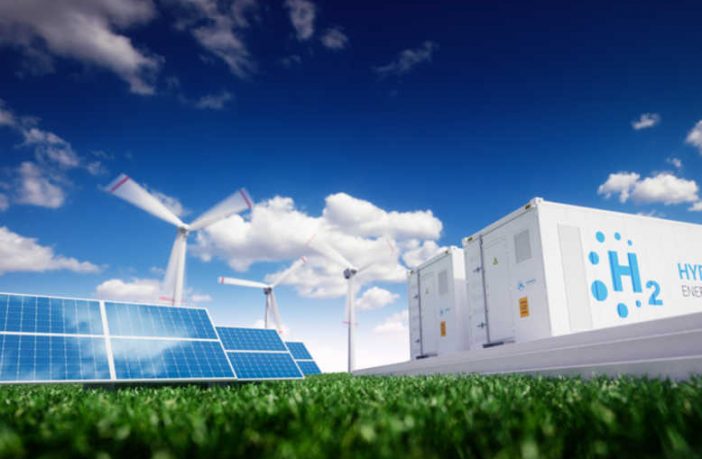- The World Bank and international partners are calling for the implementation of an action agenda to accelerate global deployment of clean hydrogen as a low-carbon energy carrier to combat climate change and strengthen energy access in developing countries.
- The plan includes the launch of a 10 GW capacity initiative – 10 times of today’s global hydrogen production using renewable energy input – by developing priority projects across emerging markets and developing countries to demonstrate viability of the nascent clean hydrogen industry, reduce financing costs, and boost adoption rates by creating scalable solutions.
The four-point action plan is part of a new report entitled “Scaling Hydrogen Financing for Development,” lead-authored by the World Bank’s Energy Sector Management Assistance Program (ESMAP.org) together with partners OECD (oecd.org), Global Infrastructure Facility (globalinfrafacility.org), and the Hydrogen Council (hydrogencouncil.com).
Clean hydrogen is produced using electricity from renewable sources or from fossil fuel with carbon capture.
Hydrogen is an energy carrier that can be used to store, move, and deliver energy and, if produced from clean sources, is particularly promising for use in hard-to-decarbonize sectors such as steel production, long-haul transport, and others. However, today global production of clean hydrogen is limited, representing less than 2 percent of total hydrogen production, as projects in emerging markets and developing countries face high financing costs due to actual and perceived risks, including uncertainty about eventual buyers and pre-agreed prices (offtake risks) and political and regulatory unpredictability.
Key Points of the Four-Point Action Plan
- 10 GW initiative consisting of lighthouse projects of between 100 MW and 1 GW in size.
- Capacity building and knowledge sharing through a digital hub, a matchmaking platform and other tools to encourage the adoption of clean hydrogen projects, which so far has received limited attention.
- International coordination and consensus to develop international standards and markets. This also includes a transparent hydrogen pricing system, which will play a decisive role in the future of clean hydrogen by mitigating risks and decreasing the costs of transactions for international buyers.
- Policies and institutional frameworks to accelerate project development as demand grows for assistance to build the industry into a competitive market and meet Paris Agreement requirements. This includes promoting a global digital platform for exchange of information on technical assistance and expanding financial resources for technical assistance to promote the production and use of clean hydrogen.
Note: The Key Findings and Executive Summary sections of the report will be available for download here on November 17: https://www.esmap.org/Hydrogen_Financing_for_Development; the full report will be available at the same URL in early December.
About ESMAP
ESMAP is a partnership between the World Bank and 24 partners to help low and middle-income countries reduce poverty and boost growth through sustainable energy solutions. ESMAP is the oldest and largest Trust Fund at the World Bank dedicated to energy and its analytical and advisory services are fully integrated within the World Bank’s country financing and policy dialogue in the energy sector. Through the World Bank Group (WBG), ESMAP works to accelerate the energy transition required to achieve Sustainable Development Goal 7 (SDG7) to ensure access to affordable, reliable, sustainable and modern energy for all. It helps to shape WBG strategies and programs to achieve the WBG Climate Change Action Plan targets.
Author: Bryan Groenendaal















